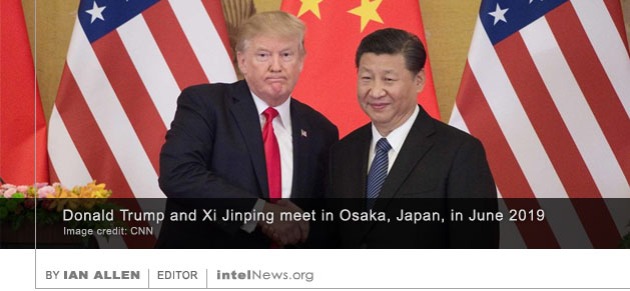
Britain is abuzz today with news of the long-awaited release of the Parliament’s report into Russian meddling in British politics. The report is the work of the Parliament’s Intelligence and Security Committee. Since 2013, the Committee has been appointed to oversee the work of Britain’s intelligence agencies. Almost all of its meetings are conducted behind closed doors, and its reports are vetted by the spy agencies prior to release. By law, the Committee cannot make its reports public without previously submitting them for approval to the Office of the Prime Minister.
In the past it has taken no more than 10 days for the Committee’s reports to be approved by the prime minister. This particular report, however, which concerns —among other things— Russian meddling into British politics, took considerably longer. It was given to the prime minister on October 17. But by November 6, when parliament was dissolved in preparation for the election that brought Boris Johnson to power, it had not been approved. It finally came out yesterday, after numerous and inexplicable delays. Many speculated that the government did not want to deal with the uncomfortable conclusions in the report.
Like all reports of its kind, this one will be politicized and used by Britain’s major parties against their rivals. But behind the politicking, the report makes for uncomfortable reading indeed. It shows that, not just British, but Western intelligence agencies as a whole, remain incapable of combating online psychological operations from foreign state actors —primarily Russia— aiming to influence Western politics on a mass scale.
This is ironic, because Western spy agencies used to be really good on Russia. In fact, during the Cold War that is all they did. Many years have passed since then, and many leading Western experts on Russia have either retired or died. Additionally, the attacks of September 11, 2001, turned the attention of Western spy agencies to terrorism by groups like al-Qaeda, and away from Russia. Meanwhile, back in Moscow, President Vladimir Putin, a former KGB officer, rebuilt the state and sought to reclaim Russia’s lost international prestige. This plan includes a page from the old KGB playbook: destabilizing Western nations through psychological operations that accentuate existing extremist tendencies from the left or right.
The British Parliament’s Intelligence and Security Committee’s report on Russia shows that the Internet, and social media in particular, have been major conduits of Russia’s psychological operations in Britain. This means that America’s 2016 presidential elections formed but a single step in Russia’s broader tactic for political destabilization of key Western nations. Additionally, whereas Western intelligence agencies have used social media to collect information, the Russians have developed an expertise in using these platforms to influence politics on a mass scale. The lack of understanding of social media dynamics by Western spies, who are usually older and not online-savvy, has added to their inability to stop Russian advances.
More importantly, the report offers clear evidence that British spy agencies —and to some extent those in leadership positions— have underestimated the degree to which Britain has been a target of Russian intelligence in recent years. This is an important realization in two ways: first, it shows that the Russian spy services have the manpower and technical capability to target many countries at once —something they had lost for a while in the 1990s. Second, it shows that other countries should take heed. If Britain has been a systematic target, chances are that Germany, France, Spain, Italy, Canada, and many others, have also been subjected to Russia’s online influence operations.
The report also shows that British spies have been so overwhelmed by this problem, that they don’t even know how to start tackling it. Doing so would take a fundamental rethinking of how to conduct intelligence in an increasingly networked and globalized world, where disinformation is quickly becoming a weapon in the hands of malicious state actors. This is completely uncharted territory, and no-one in the West is quite sure how to respond to these novel challenges.
Author: Ian Allen




